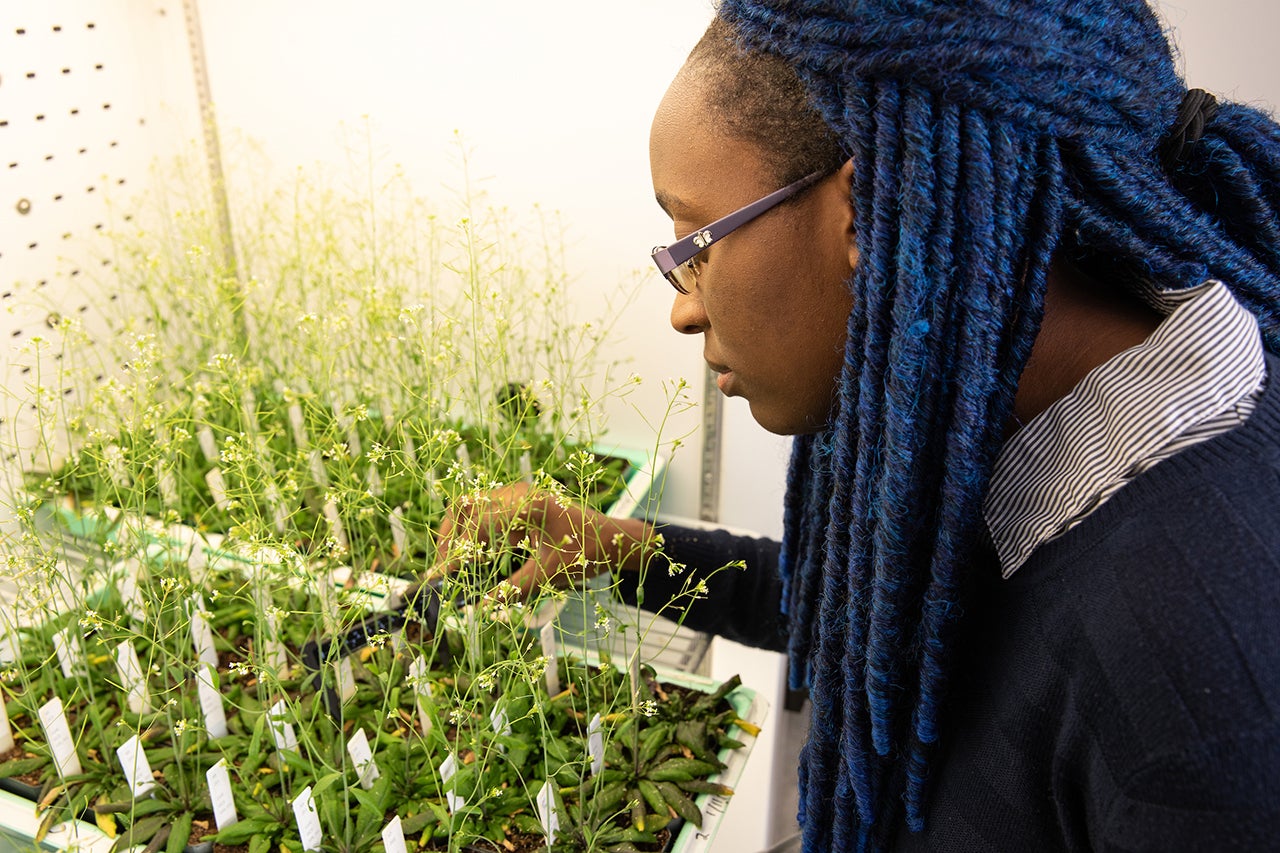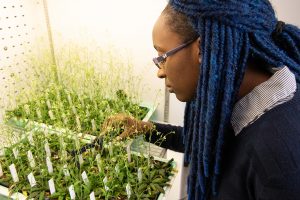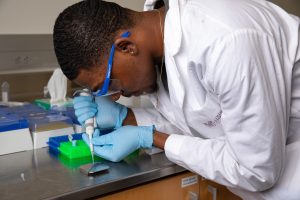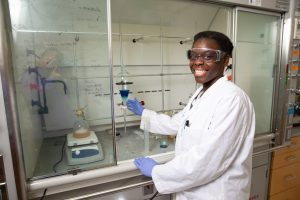Research on hurricanes from 1851 to 2017, creating noninvasive imaging material through polymer chemistry, and cyber infrastructure research development for lab and earth sciences: Those are just some of the research projects from students in the College’s South Carolina Alliance for Minority Participation (SCAMP) program.
SCAMP is an academic four-year enrichment program for under-represented minorities planning to major in astrophysics, astronomy, biochemistry, biology, chemistry, computer information systems, computer science, data science, geology, marine biology, mathematics, meteorology or physics. Established by Congress in 1991 and funded by the National Science Foundation, SCAMP’s mission is to increase the number of minority students in the degree programs of science, technology, engineering and mathematics (STEM) through mentoring, counseling, networking, tutoring and special access to professional and community development opportunities.
- Keyaira Morgan researches the relationship between light and plant growth.
- Jabbarrius Ervin studies the characterization of depsipeptides mixtures.
- Victoria Bailey researches noninvasive imaging material through polymer chemistry.
“The success of the SCAMP program has been undergirded by strong support from the School of Sciences and Mathematics and Multicultural Student Program and Services,” says Sofia Agrest, director of the SCAMP program. “Over the past four years, with successful implementation of a new recruitment plan, the number of SCAMP students has increased by 50 percent.”
And the program has helped many students like biology major Victoria Bailey and marine biology major Keyaira Morgan advance their studies in their fields.
Bailey credits the program for its strong mentorship aspect. While she was applying to medical schools she talked with former SCAMP members already accepted into medical school about the process. Bailey now has her choice of three medical school programs.
Morgan, whose research has focused on the relationship between light and a plant’s growth and development, says the program has given her valuable, hands-on experience.
“The SCAMP program has been really helpful in getting me the opportunity to do undergraduate research as well as connecting me and other students with faculty, giving us opportunities to present our research and connecting us with other minority students in STEM and sharing our experiences,” she says. “It’s thanks to the opportunities I’ve been given through SCAMP that I feel prepared for the next stage in my academic career.”
SCAMP is an initiative of the National Science Foundation and is a part of the South Carolina division of the Louis Stokes Alliance for Minority Participation program.
Photos by Heather Moran







